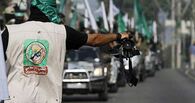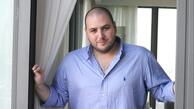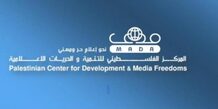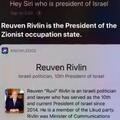15 feb 2020

Al-Qassam Brigades, the armed wing of Hamas, has warned that its WhatsApp chat groups were exposed to cyberattacks and breaches, urging its followers to leave them immediately.
“We inform you that our WhatsApp groups have been hacked,” al-Qassam Brigades said in a press release on Saturday morning, warning that the last things that were published on these groups were scams and false.
The Brigades said it would provide its followers with links to its new official groups soon.
For its part, the administration of the Palestinian security website, al-Majd, said last night that its WhatsApp and Telegram platforms had been hacked by Israeli security apparatuses last Thursday.
It asked all participants in these platforms to leave them and not to deal with the information or links published on them.
“We inform you that our WhatsApp groups have been hacked,” al-Qassam Brigades said in a press release on Saturday morning, warning that the last things that were published on these groups were scams and false.
The Brigades said it would provide its followers with links to its new official groups soon.
For its part, the administration of the Palestinian security website, al-Majd, said last night that its WhatsApp and Telegram platforms had been hacked by Israeli security apparatuses last Thursday.
It asked all participants in these platforms to leave them and not to deal with the information or links published on them.
8 feb 2020

Facebook on Saturday removed the alternative page of the Palestinian Information Center (PIC) after deleting the official 5-million-fan page in October and two backup pages in December as part of an escalating campaign against Palestinian content on social media.
The PIC administration said that the deletion of the page came with no prior notice or warning to any of its content which totally adheres to Facebook's community guide lines.
The PIC called on Facebook to reverse its decision and stop fighting Palestinian content on the international network, confirming that it had started the necessary steps to restore the page.
This oppressive move from Facebook is not the first of its kind as the PIC has been harassed by having many of its admins suspended temporarily and indefinitely.
The PIC is the most widely read online Palestinian source. It was established in 1997 and now reports news and articles on Palestine in 8 languages.
Despite the systematic attacks, the PIC insists on relentlessly reporting truth on Palestine and Israeli occupation and advancing human rights and freedom of speech for Palestine and Palestinians, and by extension for the oppressed peoples around the world.
The PIC administration said that the deletion of the page came with no prior notice or warning to any of its content which totally adheres to Facebook's community guide lines.
The PIC called on Facebook to reverse its decision and stop fighting Palestinian content on the international network, confirming that it had started the necessary steps to restore the page.
This oppressive move from Facebook is not the first of its kind as the PIC has been harassed by having many of its admins suspended temporarily and indefinitely.
The PIC is the most widely read online Palestinian source. It was established in 1997 and now reports news and articles on Palestine in 8 languages.
Despite the systematic attacks, the PIC insists on relentlessly reporting truth on Palestine and Israeli occupation and advancing human rights and freedom of speech for Palestine and Palestinians, and by extension for the oppressed peoples around the world.
6 feb 2020

The first month of 2020 witnessed a total of 27 violations against media freedoms in Palestine, 23 of which were committed by the occupation forces and authorities, while various Palestinian authorities in the West Bank and Gaza Strip committed only 4 violations, MADA said in a report, according to the PNN.
This represents a relative decline compared to what the preceding month had witnessed in (December 2019), that is a total of 36 violations, 15 violations committed by the Israeli occupation forces, similarly, (15 violations) committed by Facebook, and 6 violations committed by different Palestinian authorities.
Among the most tragic incidents witnessed by the past month, was when the doctors at Jordan Hospital in the capital, Amman, informed the journalist Attia Mohammad Darwish (32 years old, from Gaza) that he completely lost his sight in the eye that was injured more than a year ago (on 14th Dec. 2018) by a gas bomb, which was fired at him by the Israeli soldiers, and there was no hope of rescue or consistent treatment.
Darwish was informed that he completely lost sight in his eye about three months after the journalist, Moath Amarneh, lost sight in his left eye in similar circumstances, as he was shot by an Israeli soldier while he was covering a peaceful protest against the settlement in Souref, West Bank.
Israeli Violations:
The number of Israeli violations increased from 15 violations in December 2019 to 23 in January 2020. The most prominent of which is the abuse of photojournalist Thaer Abdel Nasser Al-Sharif over several hours after he was detained by the Israeli occupation soldiers at an army point near Arroub camp in the West Bank, and summoning the cameraman Abdel Mohsen Shalaldeh by the Israeli occupation Intelligence and threatening him with death if he continues to film around Ibrahimi Mosque in Hebron.
The Israeli violations documented last month (January 2020) have affected Reuters Cameraman Adel Abu Neima (detained and prevented from coverage), WAFA Agency Staff consisting of the cameraman Sulaiman Mahmoud Abu Srour, and reporter Nadeem Ahmad Alawi (prevented from coverage)
Mohammad Jareer Hamdan (sprayed with pepper), Yazan Jafar Abu Salah (arrested), cameraman Iyad Hassan Abu Shalabk (assaulted and prevented from coverage)
Shows presenter at Palestine TV journalist Thaer Abdel Nasser Al-Shareef who was arrested and detained for four hours and a half by the occupation soldiers at one of the military army points near Arroub Camp, not to mention he was assaulted and abused several times, the cameraman Rabee Hassan Muneer (suffocated and passed out)
The cameraman Abdelmuhsen Tayseer Shalaldeh (summoned and threatened with death if continued to film near the Cave of the Patriarchs), in addition to detaining the journalists: Fathi Khaleel Barahma, Omar Ahmad Hassan Abu Awad, Adel Abu Nema, Sulaiman Mahmoud Sulaiman Abu Srour, by the Israeli occupation forces and preventing journalists from covering two protesting events organized in Jericho and the Valleys, assaulting Palestine TV staff (including the cameraman Fadi Taleb Khilaf, the cameraman Thaer Yousef Arjan, and reporter Azmi Waleed Banat) by firing a gas bomb at them and prevent them from covering events in Arroub Camp.
Furthermore, the doctors at Jordan Hospital in the capital Amman informed the photojournalist Attia Mohammad Darwish, who was injured more than a year ago by a gas bomb in the face (fired directly by one of the Israeli soldiers) in the eye, that he has lost sight completely in the eye.
Palestinian Violations:
The Palestinian violations included assaulting the journalists Mohammad Awad and Mohammad Al-Masri by members of the Palestinian Authority’s National Security (who are stationed at what is known as “Point 5/5” in Beit Hanoun/Erez checkpoint, Gaza Strip), preventing Palestine TV staff consisting of the reporter Mohammad Salim Abu Hatab, and the cameraman Hossam Attiya Al-Masri, to prepare a report on the damage caused by the weather conditions in Khan Yunis and deleting a filmed material they had completed earlier.
This represents a relative decline compared to what the preceding month had witnessed in (December 2019), that is a total of 36 violations, 15 violations committed by the Israeli occupation forces, similarly, (15 violations) committed by Facebook, and 6 violations committed by different Palestinian authorities.
Among the most tragic incidents witnessed by the past month, was when the doctors at Jordan Hospital in the capital, Amman, informed the journalist Attia Mohammad Darwish (32 years old, from Gaza) that he completely lost his sight in the eye that was injured more than a year ago (on 14th Dec. 2018) by a gas bomb, which was fired at him by the Israeli soldiers, and there was no hope of rescue or consistent treatment.
Darwish was informed that he completely lost sight in his eye about three months after the journalist, Moath Amarneh, lost sight in his left eye in similar circumstances, as he was shot by an Israeli soldier while he was covering a peaceful protest against the settlement in Souref, West Bank.
Israeli Violations:
The number of Israeli violations increased from 15 violations in December 2019 to 23 in January 2020. The most prominent of which is the abuse of photojournalist Thaer Abdel Nasser Al-Sharif over several hours after he was detained by the Israeli occupation soldiers at an army point near Arroub camp in the West Bank, and summoning the cameraman Abdel Mohsen Shalaldeh by the Israeli occupation Intelligence and threatening him with death if he continues to film around Ibrahimi Mosque in Hebron.
The Israeli violations documented last month (January 2020) have affected Reuters Cameraman Adel Abu Neima (detained and prevented from coverage), WAFA Agency Staff consisting of the cameraman Sulaiman Mahmoud Abu Srour, and reporter Nadeem Ahmad Alawi (prevented from coverage)
Mohammad Jareer Hamdan (sprayed with pepper), Yazan Jafar Abu Salah (arrested), cameraman Iyad Hassan Abu Shalabk (assaulted and prevented from coverage)
Shows presenter at Palestine TV journalist Thaer Abdel Nasser Al-Shareef who was arrested and detained for four hours and a half by the occupation soldiers at one of the military army points near Arroub Camp, not to mention he was assaulted and abused several times, the cameraman Rabee Hassan Muneer (suffocated and passed out)
The cameraman Abdelmuhsen Tayseer Shalaldeh (summoned and threatened with death if continued to film near the Cave of the Patriarchs), in addition to detaining the journalists: Fathi Khaleel Barahma, Omar Ahmad Hassan Abu Awad, Adel Abu Nema, Sulaiman Mahmoud Sulaiman Abu Srour, by the Israeli occupation forces and preventing journalists from covering two protesting events organized in Jericho and the Valleys, assaulting Palestine TV staff (including the cameraman Fadi Taleb Khilaf, the cameraman Thaer Yousef Arjan, and reporter Azmi Waleed Banat) by firing a gas bomb at them and prevent them from covering events in Arroub Camp.
Furthermore, the doctors at Jordan Hospital in the capital Amman informed the photojournalist Attia Mohammad Darwish, who was injured more than a year ago by a gas bomb in the face (fired directly by one of the Israeli soldiers) in the eye, that he has lost sight completely in the eye.
Palestinian Violations:
The Palestinian violations included assaulting the journalists Mohammad Awad and Mohammad Al-Masri by members of the Palestinian Authority’s National Security (who are stationed at what is known as “Point 5/5” in Beit Hanoun/Erez checkpoint, Gaza Strip), preventing Palestine TV staff consisting of the reporter Mohammad Salim Abu Hatab, and the cameraman Hossam Attiya Al-Masri, to prepare a report on the damage caused by the weather conditions in Khan Yunis and deleting a filmed material they had completed earlier.
31 jan 2020

NSO founder and CEO Shalev Hulio
The FBI was trying to learn whether NSO obtained from American hackers any of the code it needed to infect smartphones, conducting interview with technology experts after Facebook filed a lawsuit accusing NSO of exploiting a flaw in its WhatsApp messaging service to hack 1400 users; NSO said it is not aware of any inquiry
The FBI is investigating the role of Israeli spyware vendor NSO Group Technologies in possible hacks on American residents and companies as well as suspected intelligence gathering on governments, according to four people familiar with the inquiry.
The probe was underway by 2017 when the Federal Bureau of Investigation officials were trying to learn whether NSO obtained from American hackers any of the code it needed to infect smartphones, said one person interviewed by the FBI then and again last year.
NSO said it sells its spy software and technical support exclusively to governments and that those tools are to be used in pursuing suspected terrorists and other criminals. NSO has long maintained that its products cannot target U.S. phone numbers, though some cybersecurity experts have disputed that.
The FBI conducted more interviews with technology industry experts after Facebook filed a lawsuit in October accusing NSO itself of exploiting a flaw in Facebook’s WhatsApp messaging service to hack 1,400 users, according to two people who spoke with agents or Justice Department officials.
NSO said it was not aware of any inquiry.
“We have not been contacted by any U.S. law enforcement at all about any such matters,” NSO said in a statement provided by Mercury Public Affairs strategy firm.
NSO did not answer additional questions about its employee's conduct but previously said government customers are the ones who do the hacking.
A spokeswoman for the FBI said the agency “adheres to DOJ’s policy of neither confirming nor denying the existence of any investigation, so we wouldn’t be able to provide any further comment.”
Reuters could not determine which suspected hacking targets are the top concerns for investigators or what phase the probe is in. But the company is a focus, and a key issue is how involved it has been in specific hacks, the sources said.
Part of the FBI probe has been aimed at understanding NSO’s business operations and the technical assistance it offers customers, according to two sources familiar with the inquiry.
The FBI was trying to learn whether NSO obtained from American hackers any of the code it needed to infect smartphones, conducting interview with technology experts after Facebook filed a lawsuit accusing NSO of exploiting a flaw in its WhatsApp messaging service to hack 1400 users; NSO said it is not aware of any inquiry
The FBI is investigating the role of Israeli spyware vendor NSO Group Technologies in possible hacks on American residents and companies as well as suspected intelligence gathering on governments, according to four people familiar with the inquiry.
The probe was underway by 2017 when the Federal Bureau of Investigation officials were trying to learn whether NSO obtained from American hackers any of the code it needed to infect smartphones, said one person interviewed by the FBI then and again last year.
NSO said it sells its spy software and technical support exclusively to governments and that those tools are to be used in pursuing suspected terrorists and other criminals. NSO has long maintained that its products cannot target U.S. phone numbers, though some cybersecurity experts have disputed that.
The FBI conducted more interviews with technology industry experts after Facebook filed a lawsuit in October accusing NSO itself of exploiting a flaw in Facebook’s WhatsApp messaging service to hack 1,400 users, according to two people who spoke with agents or Justice Department officials.
NSO said it was not aware of any inquiry.
“We have not been contacted by any U.S. law enforcement at all about any such matters,” NSO said in a statement provided by Mercury Public Affairs strategy firm.
NSO did not answer additional questions about its employee's conduct but previously said government customers are the ones who do the hacking.
A spokeswoman for the FBI said the agency “adheres to DOJ’s policy of neither confirming nor denying the existence of any investigation, so we wouldn’t be able to provide any further comment.”
Reuters could not determine which suspected hacking targets are the top concerns for investigators or what phase the probe is in. But the company is a focus, and a key issue is how involved it has been in specific hacks, the sources said.
Part of the FBI probe has been aimed at understanding NSO’s business operations and the technical assistance it offers customers, according to two sources familiar with the inquiry.
24 jan 2020

MADA Center participated in a regional meeting organized by Facebook, in the Jordanian capital of Amman, for two days, this week, to discuss the company’s policies regarding content, hate speech and other topics related to this area.
The Center was represented by its Director General, Moussa Rimawi, who also spoke as the head of the MENA Network to Combat Hate Speech.
Rimawi emphasized in his interventions the importance of reviewing Facebook Company’s policies related to Palestinian content, which are in line with Israeli concepts related to incitement and hate speech.
He also confirmed that Facebook closed and blocked 181 accounts and pages that belong to Palestinian journalists and media outlets, over the past year.
Rimawi, according to the PNN, also pointed out the need for the company to abandon the double standards regarding the Israeli sites that are full of incitement and hate speech against Palestinians, not only by Israeli people but the Israeli leadership as well, especially the Israeli Prime Minister Benjamin Netanyahu.
The Director General of MADA also expressed the willingness of the MENA (Middle East and North Africa) Network to combat hate speech, in cooperation with Facebook regarding hate speech in the MENA region, which has been witnessing civil wars and uprisings since 2011.
Hate speech has been practiced in a blatant manner, here, and has fueled internal conflicts.
On the other hand, Facebook company’s representatives explained the company’s policies in various fields related to content, hate speech, how to cooperate with “trusted partners,” and respond to the suggestions and inquiries of the participants at the meeting.
MADA Center, in a statement, said it will continue to follow up with Facebook on all complaints it receives from journalists, media outlets, and activists, as it did last year.
Also, the Center will continue to raise issues related to Palestinian content and discuss them with those involved with Facebook, in order to amend the policies related to this subject.
The Center was represented by its Director General, Moussa Rimawi, who also spoke as the head of the MENA Network to Combat Hate Speech.
Rimawi emphasized in his interventions the importance of reviewing Facebook Company’s policies related to Palestinian content, which are in line with Israeli concepts related to incitement and hate speech.
He also confirmed that Facebook closed and blocked 181 accounts and pages that belong to Palestinian journalists and media outlets, over the past year.
Rimawi, according to the PNN, also pointed out the need for the company to abandon the double standards regarding the Israeli sites that are full of incitement and hate speech against Palestinians, not only by Israeli people but the Israeli leadership as well, especially the Israeli Prime Minister Benjamin Netanyahu.
The Director General of MADA also expressed the willingness of the MENA (Middle East and North Africa) Network to combat hate speech, in cooperation with Facebook regarding hate speech in the MENA region, which has been witnessing civil wars and uprisings since 2011.
Hate speech has been practiced in a blatant manner, here, and has fueled internal conflicts.
On the other hand, Facebook company’s representatives explained the company’s policies in various fields related to content, hate speech, how to cooperate with “trusted partners,” and respond to the suggestions and inquiries of the participants at the meeting.
MADA Center, in a statement, said it will continue to follow up with Facebook on all complaints it receives from journalists, media outlets, and activists, as it did last year.
Also, the Center will continue to raise issues related to Palestinian content and discuss them with those involved with Facebook, in order to amend the policies related to this subject.
19 jan 2020

A glitch in the voice-controlled personal assistant was a result of the president's Wikipedia page, from which the information is usually extracted, being hacked
Apple users searching for the name Reuven Rivlin on the popular Siri app late Saturday were subjected to an unusual description of the Israeli president who was characterized as the leader of "the Zionist occupation state."
The incident, which turned out to be a technical malfunction, caused wide-spread outrage in social media with many users reporting the problem to the tech giant.
Siri, the voice-controlled personal assistant, enables owners of Apple devices to voice commands to the app in order to perform a string of tasks. The app also apparently extracts information from Wikipedia, a free online encyclopedia which anyone can freely edit. tweet
Rivlin’s English-language Wikipedia page was apparently hacked sometime on Saturday, causing Siri to extract the incorrect data.
According to a Channel 12 report on Saturday, an anonymous user named “The Arab Man” hacked the Wikipedia page and edited the president's biography, describing him as the "president of the Zionist occupation state."
According to the report, it took Wikipedia several minutes to fix the problem, but not before a few more mistakes had been made, such as Rivlin being described as “the main child of Israel.”
Apple users searching for the name Reuven Rivlin on the popular Siri app late Saturday were subjected to an unusual description of the Israeli president who was characterized as the leader of "the Zionist occupation state."
The incident, which turned out to be a technical malfunction, caused wide-spread outrage in social media with many users reporting the problem to the tech giant.
Siri, the voice-controlled personal assistant, enables owners of Apple devices to voice commands to the app in order to perform a string of tasks. The app also apparently extracts information from Wikipedia, a free online encyclopedia which anyone can freely edit. tweet
Rivlin’s English-language Wikipedia page was apparently hacked sometime on Saturday, causing Siri to extract the incorrect data.
According to a Channel 12 report on Saturday, an anonymous user named “The Arab Man” hacked the Wikipedia page and edited the president's biography, describing him as the "president of the Zionist occupation state."
According to the report, it took Wikipedia several minutes to fix the problem, but not before a few more mistakes had been made, such as Rivlin being described as “the main child of Israel.”
Page: 2 - 1
